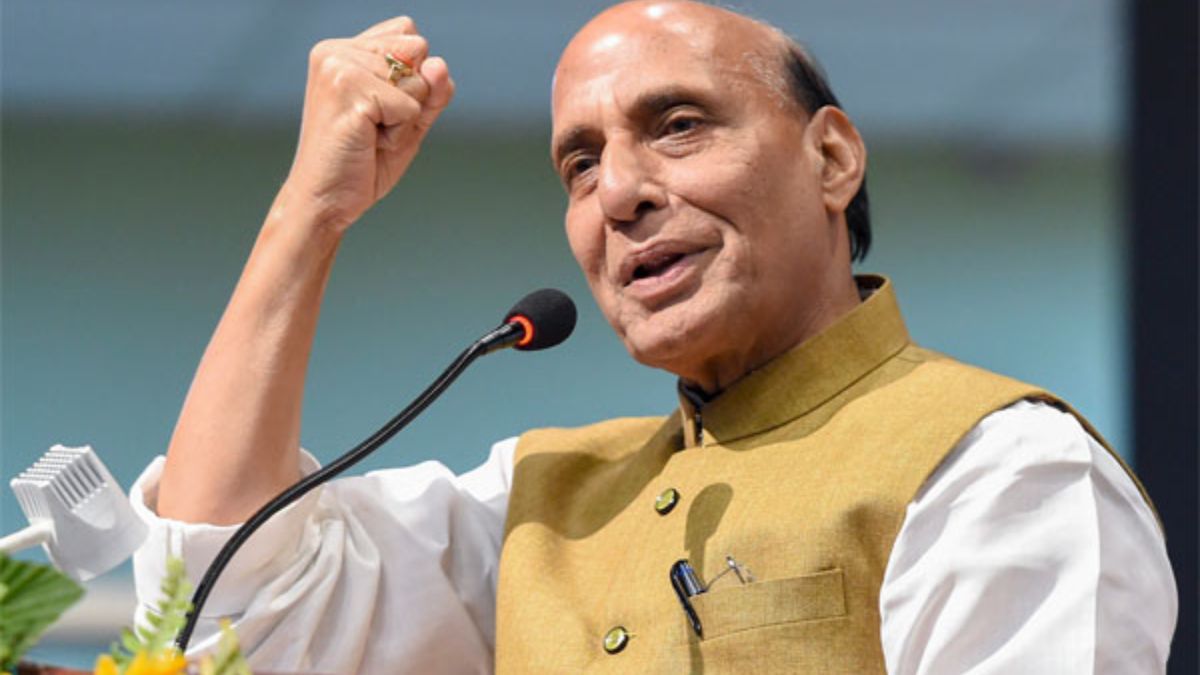During his first visit to Jammu and Kashmir following the recent tensions in the region after India’s Operation Sindoor on terror hubs, Defence Minister Rajnath Singh on Thursday questioned whether nuclear weapons are safe in the hands of an “irresponsible and rogue nation” like Pakistan and urged international organisations to supervise them.
He also suggested that Pakistan’s nuclear weapons should be monitored by the International Atomic Energy Agency (IAEA) , which works to ensure nuclear energy is used only for peaceful purposes and not for making weapons.
“Today, from the soil of Srinagar, I want to raise a question before the entire world: Are nuclear weapons safe in the hands of such an irresponsible and rogue nation? I believe that Pakistan’s nuclear weapons should be placed under the supervision of the IAEA (International Atomic Energy Agency),” Singh said while addressing the soldiers.
India’s precise Operation Sindoor on terror hubs in Pakistan
During his first visit to the Valley after India’s Operation Sindoor , a strike on terror targets in Pakistan and Pakistan-Occupied Kashmir following the April 22 Pahalgam terror attack, Defence Minister Rajnath Singh reviewed the security situation and the readiness of Indian forces. He also inspected Pakistani shells fired into border areas and visited the Army’s 15 Corps Headquarters to meet with soldiers.
Addressing the armed forces, Singh said, “I bow to the supreme sacrifice of the brave jawans who fought against terrorism and terrorists. I pay my respects to their memory. I also pay tribute to the innocent civilians who were killed in Pahalgam. I salute the valour of the injured soldiers and pray for their speedy recovery.”
PM Modi’s strong message from Adampur air base
Earlier this week, Prime Minister Narendra Modi visited Punjab’s Adampur Air Force base and interacted with soldiers.
Adampur was among the air force stations that Pakistan attempted to attack on the night of 9-10 May after India’s “Operation Sindoor”. Pakistan also claimed that its hypersonic missiles, fired from JF-17 fighter jets, had destroyed India’s S-400 air defence system in Adampur — a claim firmly rejected by Indian officials.
Impact Shorts
More ShortsPM Modi delivered a strong message from the tarmac of the Adampur Air Force base.
“Our intent is clear… if there is another attack, India will respond. We saw this after the terror attack on an Army base in J&K’s Uri in 2016 and the Balakot airstrikes following the 2019 Pulwama attack. Operation Sindoor is the new normal,” the Prime Minister said, emphasising that it will become the policy of Indian governments to take “decisive action against state-sponsored terror attacks on its citizens”.
No radiation leak from any nuclear facility in Pakistan, says IAEA amid buzz after Indian strikes in Sargodha
The International Atomic Energy Agency (IAEA) on Wednesday (IST) said there was no radiation leak or release from any nuclear facility in Pakistan, according to The Times of India, citing officials.
This statement dismissed widespread claims that Indian missiles had hit Kirana Hills in Pakistan’s Sargodha during Operation Sindoor, causing a radioactive leak.
The clarification came after social media rumours and foreign media reports suggested that a nuclear stockpile in Pakistan had been damaged during the airstrikes.


)

)
)
)
)
)
)
)
)



